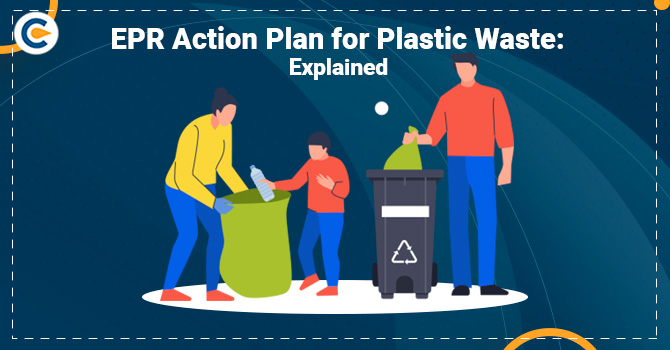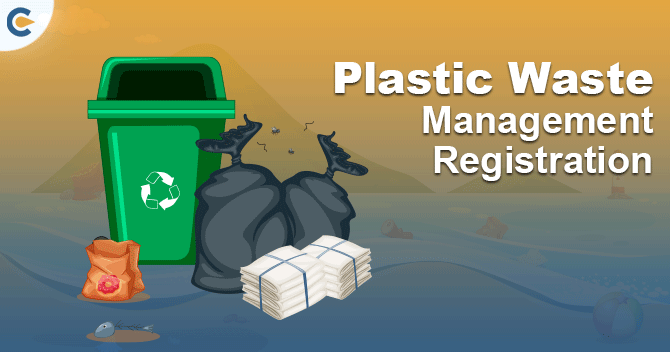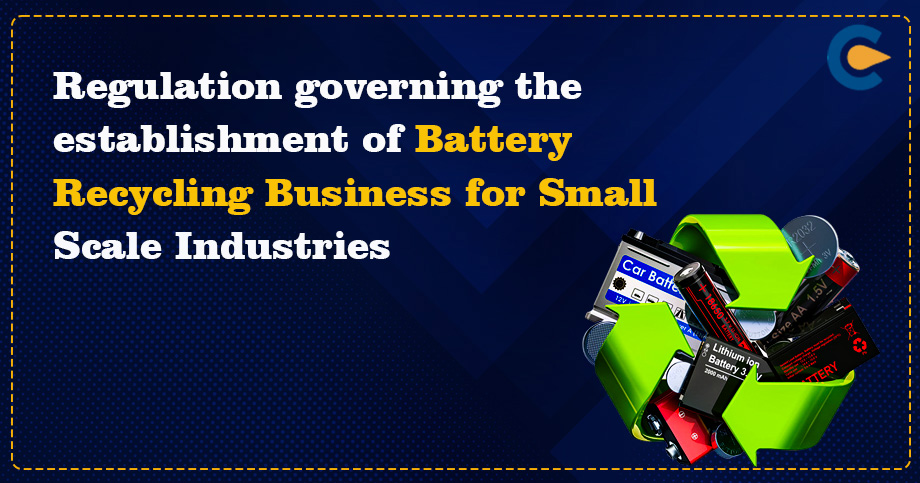The Plastic Waste Management Rules is applicable to PIBOs (producer, importer, or brand owner) who launch their plastic-packed products into a certain market. PWM rules also mandate these entities to set up systems to accumulate plastic waste generated by their product. This article will take a broad look at EPR Action Plan and other legalities mandatory for PIBOs.
Plastic packagings are usually manufactured from the following materials:
- High-Density Poly Ethylene
- Polyethylene terephthalate
- Low-Density Poly Ethylene
- Polypropylene
- Poly Vinyl Chloride
- Polystyrene
- Multi-layer packaging
Modes under PWM rules for the accumulation of plastic waste
As per PWM Rules, 2016[1], PIBOs are permitted to collect plastic waste via the following modes.
- Through their distribution channel
- Tie-up with ULBs, i.e., Urban Local Bodies
- Work with PROs and WMC, i.e., waste management companies
Registration Compliance for PIBOs under PWM Rules
Every PIBO (Producer or Brand owner) shall apply for registration under PWM rules, 2016 via form 1. The said form should be filed with the following authorities depending on the scope of operation:
- The respective SPCB or PCB of the UT, if the entity is functional in one more or two states or UTs; or
- The CPCB i.e., Central Pollution Control Board, if the entity is functional in more than two Indian states or UTs.
Steps for EPR fulfillment for Plastic Waste
Step 1: Define waste procurement targets
Step 2: Identify fulfillment partners as mentioned above
Step 3: Draft an Action Plan* as the format cited under PWM Rules, 2016
Step 4: File application for PWM Registration with the competent authority and start meeting EPR target
Step 5: Quarterly filing
While filing an application for registration, the applicant must facilitate various documents relating to plant setup, business registration, and EPR action plan:
EPR action plan depicts the firm’s capabilities of procuring/recycling/ processing plastic wastes from a materialistic viewpoint. Before we dive into the underlying format of the EPR Action plan, let us understand the term Extended Produce Responsibility.
What is the role of Extended Producer Responsibility?
Extended Produce Responsibility refers to a policy approach under which PIBOs are given an important financial and/or physical responsibility for the disposal or processing of post-consumer products.
EPR is the producer’s accountability to ensure environmentally sound management of their products till the end of their intended uses or service life.
It may include deploying a take-back system by establishing collection centers & having agreed arrangements with the competent entities either individually or via a recognized Producer Responsibility Organization (PRO).
Action Plan to be drafted by PIBOs under PWM Rules
Following is the Format for Drafting Action Plan as per PWM Rules
|
S.No |
Item |
Description |
|
1. |
Unit’s name and address |
|
|
2. |
Type and Quantum of Plastic used |
|
|
3. |
Estimated quantum of Plastic waste to be generated |
|
|
4. |
Action plan relating to own waste/ equivalent quantum of waste |
|
|
5. |
In case of equivalent quantum of waste, source of waste generation to be pinpointed |
|
|
6. |
Action plan based on:
|
|
|
6a |
Own Distribution Channel |
|
|
i. |
Distribution network’s detail |
|
|
ii. |
Does the network posses Pan-India Coverage |
|
|
iii. |
Estimated quantum of waste to be accumulated
|
|
|
iv. |
Mode of recycling/reusing waste |
|
|
v. |
Registration detail of the recycler/coprocessor/agency involved with road making |
|
|
6b. |
Engagement with ULBs |
|
|
i. |
List of ULBs to be engaged with |
|
|
ii. |
Does the aforementioned list has pan India coverage |
|
|
iii. |
breakup waste to be accumulated with the aid of ULBs |
|
|
iv. |
Documentation supporting involvement with ULBs |
|
|
v. |
Mode of reusing/recycling waste (Recycler/Co processing/Road making) |
|
|
vi. |
Involvement with Coprocessor/recycler/agency involved with road making |
|
|
vii. |
Registration details relating to Recycler / Agency/ Coprocessor involved with Road making |
|
|
viii. |
Break-up of quantity to be sent to Recycler /Agencies/ Coprocessor engaged in Road making |
|
|
ix. |
Document reflecting involvement with Recycler/Agency/ Coprocessor engaged in Road making |
|
|
6c |
Engagement of Agency |
|
|
i. |
List of Agencies to be engaged |
|
|
ii. |
Does the aforementioned list has pan India coverage |
|
|
iii. |
Document reflecting engagement of the Agency by the ULBs/ Bulk Waste generators |
|
|
iv. |
Break up of Waste to be collected/segregated by the Agency |
|
|
v. |
Mode of Reusing/Recycling Waste ( Recycler/ Road Making / Co processing) |
|
|
vi. |
Engagement with Recycler / Coprocessor/ Agency engaged in Road making |
|
|
vii. |
registration details of Recycler/ Coprocessor/ Agency involvement Road making |
|
|
viii. |
Break-up of quantity to be sent to Recycler/Agencies/ Coprocessor engaged in Road making |
|
|
6d. |
Any Other alternatives (provide details on PWM as per 6 a-c above) |
Conclusion
Given the above information, we can conclude that EPR Action Plan is an absolute mandate for PIBOs operating pan India. It should be drafted as per the format mentioned above. Document preparation and form filing can be a hectic undertaking for the first-timer, considering the availability of legalities cited under the PWM Rules. Therefore, it is ideal to precede under the supervision of an expert firm like Corpbiz. This advanced platform is touted for rendering best-in-class licensing services to clients pan India.
Read our Article:How to get Plastic Waste Management Registration?











